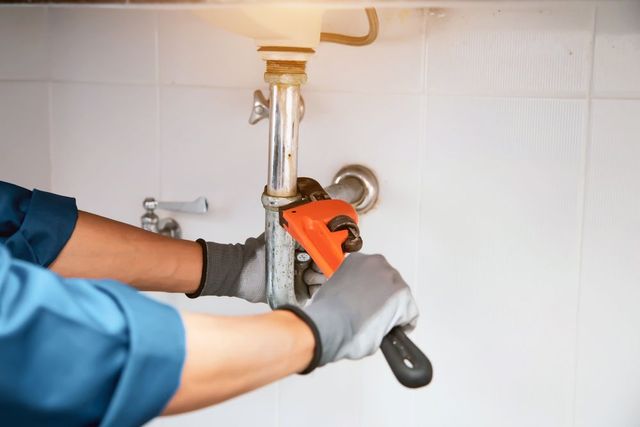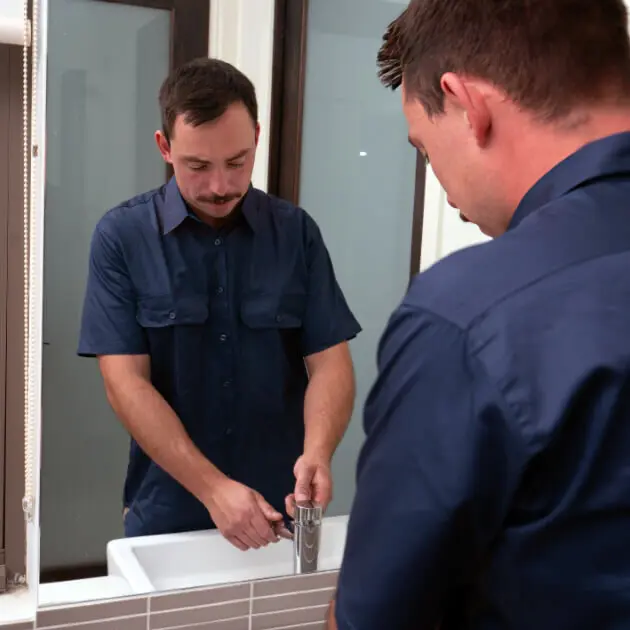Handling Your New Home's Bathroom Plumbing: Key Advice
Handling Your New Home's Bathroom Plumbing: Key Advice
Blog Article
What're your opinions concerning Plumbing Tips for New Homeowners?

For new house owners, understanding and preserving bathroom plumbing can conserve both money and time by stopping expensive concerns down the line. Below are some necessary washroom plumbing ideas to aid you keep everything running smoothly.
Familiarize Yourself with the Key Shut-Off Valve
Knowing where the major water shut-off shutoff lies in your home is crucial. This permits you to quickly shut off the supply of water in case of significant leakages or throughout pipes emergencies, avoiding comprehensive water damages.
On A Regular Basis Inspect for Leakages
Little leaks can bring about huge problems. Frequently inspect under sinks, around toilets, and near pipes components for any type of indications of leakages. Search for wetness, small drips, or corrosion. Catching and repairing leakages early can avoid extra major damage and conserve water.
Don't Neglect Slow Drains Pipes
If your sink or tub is draining gradually, it's commonly an indication of a clog developing. Addressing this early can protect against a total blockage. Utilize a bettor or a plumbing professional's serpent to remove particles. Prevent utilizing chemical drain cleansers as they can damage your pipelines in time.
Know What Not to Flush
Toilets are not waste disposal unit. Avoid purging anything besides toilet tissue and human waste. Products like wipes, womanly hygiene products, and cotton bud ought to be dealt with in the garbage to avoid clogs and sewage system back-ups.
Set Up Strainers in Drains
Area filters in your sink and bathtub drains pipes to capture hair and various other particles prior to they enter your pipes system. Cleansing the filters consistently will help avoid build-up and keep water streaming openly.
Preserve Your Hot Water Heater
Ensure your hot water heater is readied to an ideal temperature (typically around 120 degrees Fahrenheit) to avoid hot and minimize power usage. Flush the container every year to eliminate sediment buildup, which can minimize the efficiency and life-span of your heating unit.
Upgrade Your Fixtures
If your home has older components, consider updating to much more reliable designs. Modern commodes, showerheads, and faucets are developed to use much less water while offering good pressure, which can significantly decrease your water costs and ecological impact.
Be Cautious with Do It Yourself Plumbing Fixes
While it's appealing to handle all home fixings by yourself, beware with plumbing. Some issues might call for expert know-how, particularly if they involve major water lines or sewer fixings. Hiring a professional can in some cases be extra affordable than DIY, particularly if it stops further damage.
Plan For Winter
Safeguard your pipes from cold during winter by protecting pipelines in unheated locations like cellars, attics, and garages. During severe cool, allow cold water drip from taps offered by subjected pipelines to aid protect against cold.
Set Up Regular Maintenance
Consider organizing annual inspections with a licensed plumbing. They can spot issues that you could miss out on, such as hidden leakages or damage on pipelines and components. Normal maintenance assists prolong the life of your plumbing system and can prevent emergencies.
Verdict
Recognizing and preserving your home's restroom plumbing can prevent many usual problems. By following these important tips, you can guarantee your washroom stays functional and reliable, conserving you time and money in the future.
Essential Plumbing Tips for Homeowners: Keep Your Pipes Flowing Smoothly
As a homeowner, understanding the basics of your plumbing system can save you time, money, and a lot of headaches. Plumbing issues can range from minor annoyances like dripping faucets to major problems like burst pipes that cause significant damage. This guide provides essential tips to help you maintain your plumbing system and tackle common issues.
Understanding Your Plumbing System
Supply System: Brings fresh water into your home from a municipal source or a well. Drain-Waste-Vent System: Removes wastewater and vents sewer gases outside. Fixtures and Appliances: Includes sinks, toilets, showers, dishwashers, and washing machines. Basic Maintenance Tips
Regular Inspections: Periodically check for leaks, corrosion, and other signs of wear and tear. Look under sinks, around toilets, and near water heaters. Know Your Main Shut-Off Valve: In case of a major leak, you’ll need to shut off the water quickly. Ensure everyone in your household knows where the main shut-off valve is located. Prevent Frozen Pipes: In cold climates, insulate exposed pipes and let faucets drip during extreme cold to prevent freezing. Use Strainers: Install strainers in sinks and tubs to catch hair, food particles, and other debris that can cause clogs. Common Plumbing Issues and Solutions
Clogged Drains:
Prevention: Avoid pouring grease down the drain and use drain screens to catch debris. DIY Fix: Use a plunger or a plumbing snake to clear minor clogs. For stubborn clogs, a mixture of baking soda and vinegar can sometimes help. Leaky Faucets:
Prevention: Replace washers and seals regularly. DIY Fix: Turn off the water supply, disassemble the faucet, and replace worn parts.

Call Today Report this page